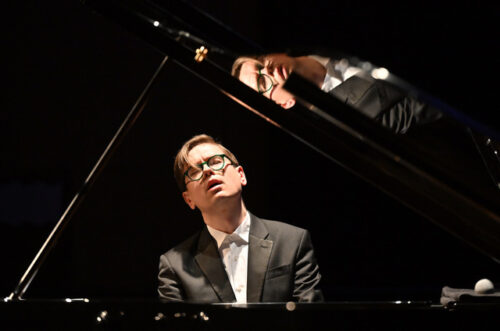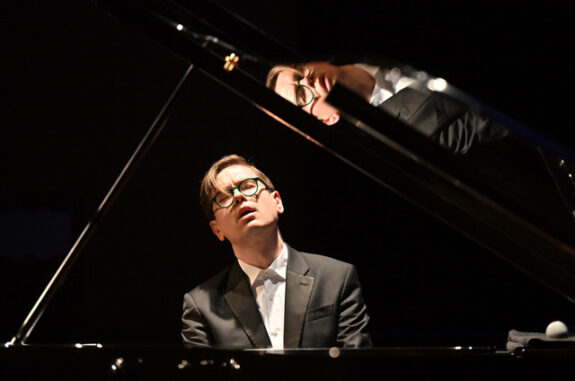 Switzerland Brahms, Thorvaldsdottir, Stravinsky: Víkingur Ólafsson (piano), Tonhalle-Orchester Zürich / Paavo Järvi (conductor). Tonhalle Zurich, 18.9.2024. (VL)
Switzerland Brahms, Thorvaldsdottir, Stravinsky: Víkingur Ólafsson (piano), Tonhalle-Orchester Zürich / Paavo Järvi (conductor). Tonhalle Zurich, 18.9.2024. (VL)

Brahms – Piano Concerto No.1 in D minor, Op.15
Thorvaldsdottir – Archora for orchestra
Stravinsky – L’oiseau de feu, concert suite
The season opener of the Tonhalle-Orchester Zürich under the direction of Paavo Järvi was a musical extravaganza that took the audience on a journey through the history of music.
The evening began with Brahms’s Piano Concerto No.1 in D minor, performed by Víkingur Ólafsson. Composed in the 1850s, it is a prime example of late romanticism. The work combines virtuosic piano passages with profound orchestral textures and reflects the composer’s engagement with the tradition of classical piano concertos. Brahms revised the concerto multiple times before its eventual premiere, which was initially met with mixed reactions.
The first movement follows a traditional sonata form. It opens with a sombre orchestral theme, contrasted by a passionate piano part. The development of the theme is marked by constant tension between lyrical and dramatic moments. Brahms employs a rich harmonic language, characterised by modulations and unexpected harmonic turns, which create a sense of tension and unease. The orchestration is dense and colourful, with the wind instruments providing a fullness and depth to the movement.
Next comes the Adagio, a lyrical movement dominated by a heartfelt melody, which feels more romantic than the first movement. The melody is flowing and sustained. The piano and orchestra engage in a tender, intimate dialogue.
The finale is a Rondo, a virtuosic movement that opens with a lively dance melody, highlighting the complexity of the work. The piano showcases its technical brilliance, while the orchestra provides a resounding backdrop.
Soloist Víkingur Ólafsson performed with great sensitivity, delighting the audience, who responded with a standing ovation. They were further rewarded with an encore: Bach’s Prelude in B minor, arranged by Alexander Siloti.
After the interval, the spotlight shifted to contemporary Icelandic composer Anna Thorvaldsdottir. Her work, Archora, is a sonic structure that takes the listener on a fascinating journey through sound. The music is defined by an intense exploration of timbre and space. Thorvaldsdottir herself describes Archora as a soundscape inspired by nature. The work is divided into several sections that seamlessly flow into one another. Through the use of different timbres, from soft string textures to powerful brass choruses, the listening experience is almost tangible. The music is often dissonant, creating an atmosphere of unrest and turmoil.
The evening concluded with Igor Stravinsky’s Firebird (L’oiseau de feu). Composed in the early twentieth century, this piece exemplifies the new musical language Stravinsky developed. The suite is characterised by rhythmic patterns, dissonant sounds, and an exotic atmosphere reminiscent of Russian fairy tales. This impression is achieved through the use of instruments in unusual combinations to create exotic timbres. Rhythm plays a central role here, often irregular or asymmetrical. The Tonhalle-Orchester Zürich delivered a precise and energetic interpretation.
With these exceptional works and an outstanding performance, the Tonhalle-Orchester Zürich under Paavo Järvi made a stunning start to the season, sparking the audience’s curiosity for what is to come.
Valérie Litz
